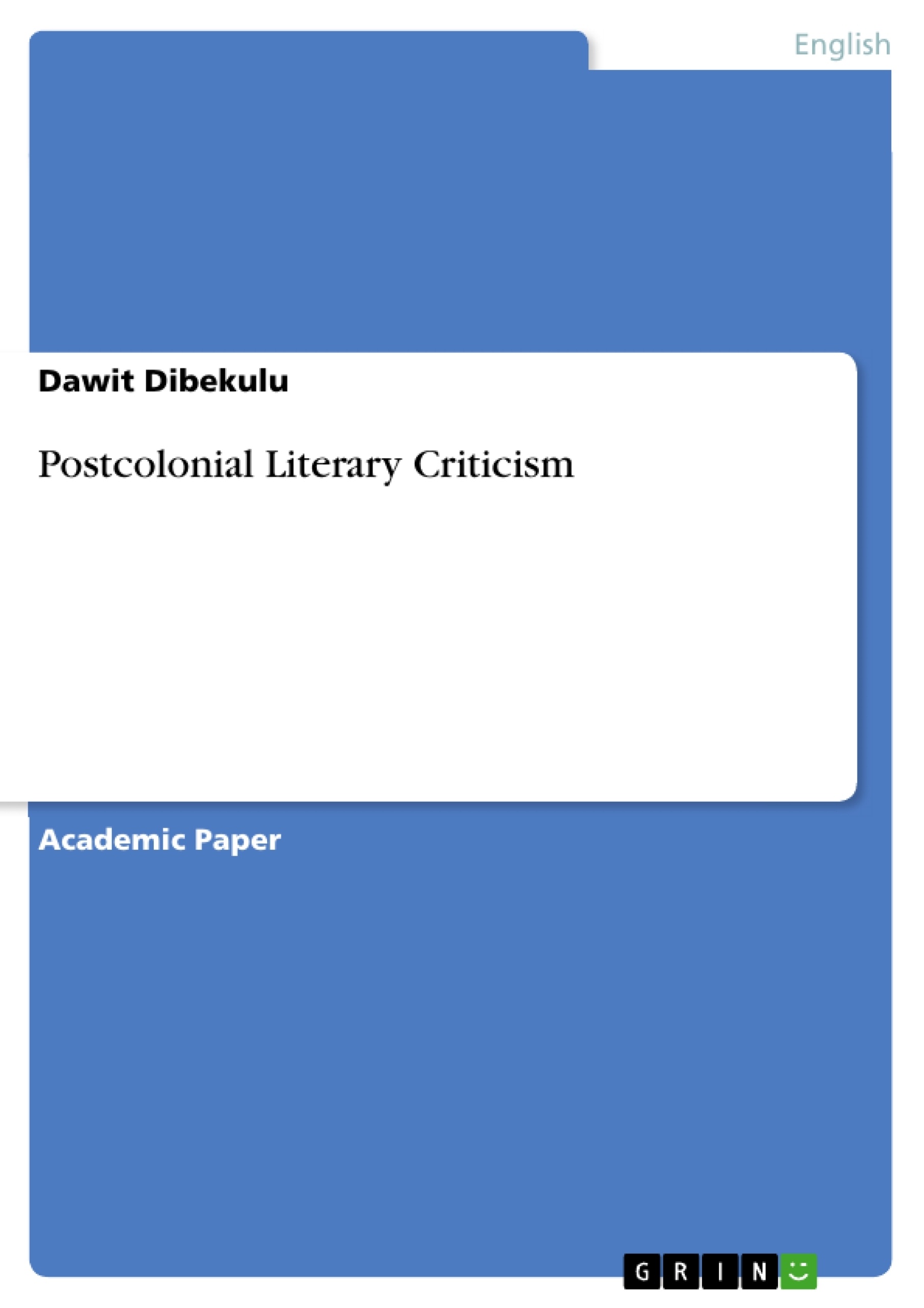Literature by and about people from former European colonies, mainly in Africa, Asia, South America, and the Caribbean (about the 1950s–present). This literature strives to broaden the traditional Western canon while also challenging Eurocentric preconceptions about literature, particularly through examinations of otherness, identity, and race. Although post-colonial critique is comparable to cultural studies, it implies a distinct perspective on literature and politics that requires its own study. Post-colonial critics are particularly interested in literature produced by colonial powers as well as writings created by individuals who were/are colonized. Power, economics, politics, religion, and culture are all investigated in connection to colonial hegemony in post-colonial theory (Western colonizers controlling the colonized). Thus, the aim of this paper is to explain the concept of postcolonial literary criticism.
Table of Contents
- I. Introduction
- 1. Postcolonial Literary Criticism
- 1.1. The Emergence of Postcolonial Literary Criticism
- 1.2. Key Theorists in Postcolonial Literary Criticism
- 1.3. Phases of Postcolonial Literature
- 1.3.1. Adopt Phase
- 1.3.2. Adapt Phase
- 1.3.3. Adept Phase
- 1.4. Theoretical Postulations of Postcolonial Literary Criticism
- 1.5. Principles and Issues/Assumptions of Postcolonial Literary Criticism
- 1.6. Key Terms in Postcolonial Literary Criticism
- 1.7. The Task of Postcolonial Critiques
- 1.8. Questions Asked by Postcolonial Literary Criticism
- 1.9. Strengths and Weakness of Postcolonial Literary Criticism
- 1.9.1. Strengths of Postcolonial Literary Criticism
- 1.9.2. Weakness of Postcolonial Literary Criticism
- 1.10. Criticism against Postcolonial Literary Criticism
- 1.11. Practical Examples in the Lens of Postcolonial Literary Criticism
- II. Summary
Objectives and Key Themes
The main objective of this paper is to explain the concept of postcolonial literary criticism. It aims to provide a historical background, identify key theorists and terms, explore basic assumptions, phases, and questions within the field, and finally, assess the strengths and weaknesses of this critical approach.
- The emergence and development of postcolonial literary criticism.
- Key theorists and their contributions to the field.
- Phases of postcolonial literature (Adopt, Adapt, Adept).
- The strengths and weaknesses of postcolonial literary criticism.
- The application of postcolonial literary criticism to practical examples.
Chapter Summaries
I. Introduction: This introductory chapter provides a foundational understanding of postcolonial literary criticism. It defines the scope of the field, focusing on literature produced by and about people from former European colonies. The chapter explores the relationship between postcolonial critique and cultural studies, highlighting the distinct perspective it offers on literature and politics. It delves into the historical context of the emergence of postcolonial literary criticism, tracing its roots to the mid-20th century as countries gained independence. The chapter also touches upon the key themes explored within postcolonial literature, such as power dynamics, economic exploitation, and the construction of cultural identity, setting the stage for a deeper exploration of the subject in subsequent sections. It briefly introduces significant concepts like hybridity and the lasting impact of colonial hegemony.
Frequently Asked Questions: A Comprehensive Guide to Postcolonial Literary Criticism
What is the overall purpose of this document?
This document serves as a comprehensive preview of a work on postcolonial literary criticism. It includes a table of contents, objectives and key themes, chapter summaries, and keywords, providing a structured overview of the subject matter for academic use.
What topics are covered in the Table of Contents?
The table of contents details the structure of the work, starting with an introduction to postcolonial literary criticism. This introduction covers the emergence of the field, key theorists, phases of postcolonial literature (Adopt, Adapt, Adept), theoretical postulations, principles, key terms, the task of postcolonial critiques, questions asked by this approach, its strengths and weaknesses, criticism against it, and practical examples. The document also includes a summary section.
What are the main objectives and key themes explored?
The main objective is to explain the concept of postcolonial literary criticism. The key themes include the emergence and development of the field; key theorists and their contributions; phases of postcolonial literature (Adopt, Adapt, Adept); strengths and weaknesses of the critical approach; and the application of postcolonial literary criticism to practical examples.
What does the chapter summary cover?
The chapter summary focuses on the introductory chapter, which provides a foundational understanding of postcolonial literary criticism. It defines the field's scope, explores its relationship with cultural studies, delves into its historical context, and touches upon key themes such as power dynamics, economic exploitation, and the construction of cultural identity. It also briefly introduces concepts like hybridity and the lasting impact of colonial hegemony.
What are the phases of postcolonial literature mentioned?
The document identifies three phases of postcolonial literature: Adopt, Adapt, and Adept. While the specific meaning of these phases isn't fully defined in the preview, they suggest a progression in the engagement with and response to colonial legacies.
What are the strengths and weaknesses of postcolonial literary criticism, as presented?
The preview indicates that the strengths and weaknesses of postcolonial literary criticism will be analyzed in the full work. However, the specific points are not detailed in this preview.
What kind of practical examples are included?
The preview mentions that practical examples will be used to illustrate the application of postcolonial literary criticism. However, the specific examples are not provided in this overview.
Who are some key theorists mentioned in the preview?
The preview mentions that key theorists in postcolonial literary criticism will be identified and their contributions explored in the full text, though specific names are not listed in this preview.
For whom is this document intended?
This document is intended for academic use, facilitating the analysis of themes in postcolonial literary criticism in a structured and professional manner.
- Quote paper
- Dawit Dibekulu (Author), 2022, Postcolonial Literary Criticism, Munich, GRIN Verlag, https://www.grin.com/document/1245235




